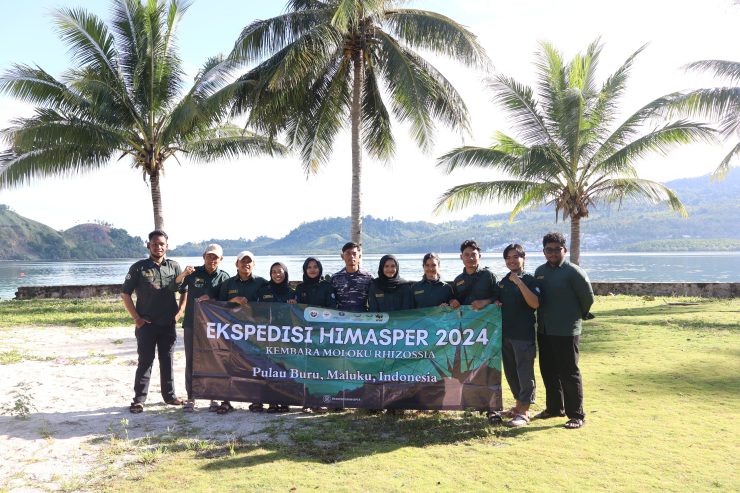Himasper Expedition: Kembara Moloku Rhizossia,
Unite to Save the Maluku Sea

Search
Recent Post ...
Share
Recently, from September 24 to October 18, 2024, IPB University students, led by Aron and his colleagues, collaborated with the government and Non-Governmental Organizations (NGOs) under the Expedition Group of the Faculty of Fisheries and Marine Sciences to conduct research aimed at establishing a marine conservation area in Maluku, specifically on Buru Island. The initiative, known as Himasper Expedition: Kembara Moloku Rhizossia, was driven by the rich natural resources observed in the area, inspiring a deeper exploration of mangrove and seagrass ecosystems.
The ten-member team from Department of Aquatic Resource Management, along with various stakeholders, worked diligently to establish a marine conservation area on Buru Island. Throughout the research process, the local community participated actively and provided significant assistance. Valuable insights were gained, particularly through interviews with residents, broadening the team’s understanding and knowledge.

“The biodiversity there is incredibly diverse, with numerous turtles and beautiful coral reefs. We also identified five types of seagrass, out of the 12 or 13 species found across Indonesia, which is quite remarkable. Additionally, the mangrove ecosystems are highly varied, making the area well-suited for marine conservation,” said Aron, a team member and the expedition leader.
During the research on Buru Island, Aron and his team faced several challenges, including the presence of natural predators like crocodiles, which required them to stay vigilant and cautious. Moreover, although the team had pre-determined research sites, field conditions necessitated adjustments and modifications to their initial plans.
 Despite the difficulties, Aron and his team experienced many positive outcomes, including gaining new and rewarding experiences, witnessing the natural beauty of Buru Island, and learning from the local community. The establishment of a marine conservation area is expected to benefit local fishermen by reducing the distance they need to travel to fish, contributing to community welfare.
Despite the difficulties, Aron and his team experienced many positive outcomes, including gaining new and rewarding experiences, witnessing the natural beauty of Buru Island, and learning from the local community. The establishment of a marine conservation area is expected to benefit local fishermen by reducing the distance they need to travel to fish, contributing to community welfare.
Reflecting on the research, Aron expressed his hopes for the sustainability of the marine conservation area: “I hope that with this conservation area, fishermen can prosper, working together in mutual support. For stakeholders and the government, I hope that the development and management processes will run smoothly and effectively, involving the community in a meaningful way.”
Reporter: Putri Elsa Amelia Silalahi
Editor: Rosita
Source: korpusipb.com
More News in Category:
Department of Aquatic Resources Management © 2024